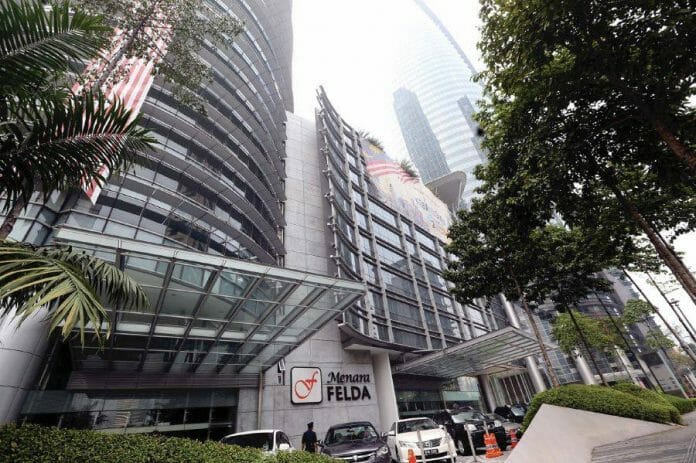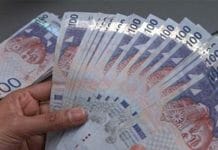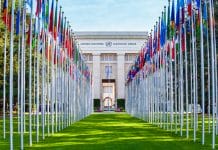By Jason Loh
In calling for a new deal on behalf of the Federal Land Development Authority (Felda) fit for the 21st century, we shouldn’t rush into swinging to the other extreme of the pendulum – so that if the problem with the statutory body is “mismanagement”, for example, the solution shouldn’t be privatisation if at all but enhancing its accountability, competency and transparency.
On Apr 10 last year, a White Paper was tabled in Parliament to address the perennial problems faced by Felda internally as well as externally and sets out the measures to resolve them.
Among the main highlights of the White Paper are the government will allocate a total of RM6.23 billion for repayment of principal and interest on debt; and divestment from non-core and non-strategic assets. The terms of the land lease agreement between Felda and Felda Global Ventures (FGV) is set to be revisited.
Of course, privatisation isn’t on the cards but arguably this will not stop the idea from being floated and pushed for in the future, nonetheless.
FGV is already the principal target under scrutiny, perhaps a favourite whipping boy because of failed investments in the past. It is a subsidiary of Felda that concentrates mainly on the three core sectors of plantations, sugar and logistics. It is involved in all the streams of the supply chain and business activities of its plantations and sugar portfolios.
Through FGV, Felda manages 439,725 hectares of oil palm plantations in Malaysia and Indonesia whilst producing approximately 3 million metric tonnes (MT) of crude palm oil (CPO) per year on average.
But the real and ultimate concern is Felda.
Hypothetically, should it be raised later as an option to be considered for privatisation, the counter-argument is that privatisation would erase Felda’s status as a living and institutional symbol of our nation’s identity.
The question to be asked in this regard is why is Petronas, another of our living and institutional symbol of national pride and success, not saddled with problems the same way as Felda is?
Concomitantly, privatisation would, in effect, relegate Felda’s contribution to national development and nation-building into a relic of the past not even worth of totemic significance.
A proposal for full-blooded privatisation will undermine the above and only protect the interests of the shareholders and reducing Felda settlers in effect to plantation workers with little bargaining and negotiating rights and interests.
The government must never be seen to overtly or covertly diminish or dilute the sacrifices and toil of the Felda pioneer settlers and their successors.
As such, business and financial considerations should never override the social and welfare interests of the smallholders. After all, collectively, these smallholders contribute to one of the nation’s key exports and, by extension, its economic growth and development.
In addition to privatisation, other basic options/models for the reforming and restructuring of Felda as statutory body and agency formed under the Land Development Ordinance (1956) are as follows – for it to be transformed into a:
- Government-linked company (GLC);
- Government-linked investment company (GLIC);
- Full blown corporate entity; and
- Trust – arm’s-length from the government
Only the trust model would enable the interests of all stakeholders defined as the government (not only federal but state as well), smallholders, other players and the nation writ large to be properly balanced, and allow for the retention of the original vision and mission of Felda as the premier State-sponsored agri-business organisation for smallholders.
It would preserve what is rightfully a social contract in its own right between Felda and the smallholders – embodying and giving concrete expression to the socio-economic dimension of the wider social contract that is embedded in our Federal Constitution.
Not to mention, at the same time the uniqueness of Felda will be upheld also – as the world’s most successful resettlement and land development scheme as acknowledged by the World Bank.
To be sure, this trust model would incorporate the best of all worlds.
Felda would become a semi-government trust entity acting as agent and mediator on behalf of both the government and smallholders.
The transformation into an autonomous and semi-independent trust or Yayasan should be based on a mixture of secular and Islamic principles, where relevant, including the principles of waqf as suggested by Prof Dr Ismail Omar, President of the Land Professionals Association of Malaysia (Pertama).
This trust model would infuse greater accountability, competency and transparency into Felda and combine the best of both public and private governance styles and practices.
Towards that end, technocrats, civil servants and corporate figures, both retired and serving, should be brought in to helm and manage Felda as a trust entity shorn of political pressure and influence. The chairman of Felda should no longer be a politician from the ruling coalition party.
The new plantation model should maintain palm oil as a primary driver of income but integration of all the streams should be deepened. The R&D and production of biofuel, for example, are an integral and inseparable component of the overall oil palm/palm oil industry which must continue to be the “centrepiece” of the Felda story.
All of this in the context of FGV – as the main arm of Felda – de-listed and going private.
Its revenue would be recycled back within Felda itself into a semi-sovereign wealth fund where a fixed or variable allocation is reserved for Felda smallholders and their families. It’s Felda’s revenue and income that’s to be “privatised”, in the final analysis.
The government could be less reliant on Felda in terms of exports earnings which can be channelled back to the settlers and more focussed on the investments, including in green energy and renewables, made by that semi-sovereign wealth fund.
In short, to move forward, we need to go back to basics – come back to full circle, that is. Hopefully, the new deal which the Felda Task Force will be releasing in due course reflect this.
Jason Loh Seong Wei is Head of Social, Law & Human Rights at Emir Research, an independent think tank focussed on strategic policy recommendations based on rigorous research.









